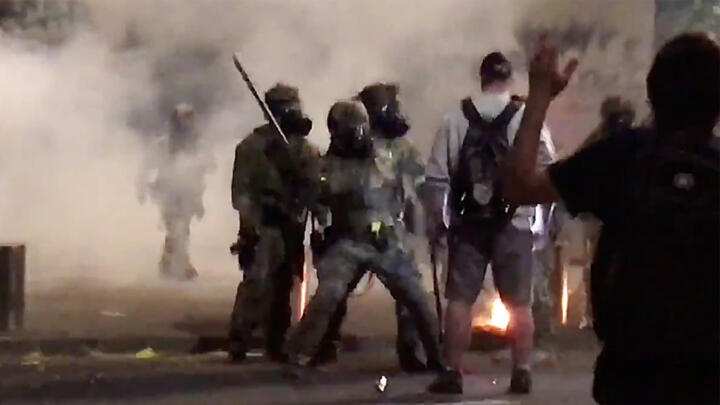Portland, Oregon, has long been a hotspot for activism, but the past week has seen tensions flare around the U.S. Immigration and Customs Enforcement (ICE) facility in South Portland. What began as smaller demonstrations against President Trump’s mass deportation policies has escalated into nightly standoffs, with federal agents deploying tear gas and making arrests as protesters block entrances and clash sporadically. On October 4, hundreds marched from nearby Elizabeth Caruthers Park to the site, leading to confrontations where Department of Homeland Security (DHS) officers in riot gear tackled demonstrators and used chemical irritants. Local police have made a handful of arrests for disorderly conduct, including a conservative journalist amid reports of fights and provocations.
In response, Trump announced plans to federalize 200 Oregon National Guard troops under Title 10 authority, bypassing objections from Governor Tina Kotek and Mayor Keith Wilson, to safeguard federal personnel and property. The president labeled Portland “war-ravaged” and invoked threats from “domestic terrorists,” drawing parallels to 2020 unrest. However, local reports paint a different picture: protests often involve fewer than 100 people, with the Portland Police Bureau’s 812 officers trained for crowd control and First Amendment protections, and crime rates actually declining.
Enter U.S. District Judge Karin Immergut, a Trump appointee, who on October 4 issued a temporary restraining order blocking the deployment for at least 14 days, until October 18. In a detailed ruling, Immergut argued the administration failed to meet the constitutional threshold—such as an insurrection or invasion—required to federalize state troops without gubernatorial consent, potentially violating the Posse Comitatus Act and the Tenth Amendment. She described Trump’s claims as “untethered to facts,” noting protests were not “significantly violent or disruptive” and that local law enforcement could handle them. The judge warned that such a move could inflame tensions, echoing a recent California ruling against a similar deployment in Los Angeles.
The White House swiftly appealed, calling the order an obstruction to protecting federal assets and vowing vindication in higher courts. Oregon Attorney General Dan Rayfield plans to seek an extension, while the ACLU and local leaders hailed it as a defense of state sovereignty and constitutional limits on military involvement in civilian affairs. This comes amid broader federal pushes, including a new order for 300 Guard troops in Chicago despite objections there.
As the lawsuit progresses, with a potential hearing on October 17, Portland’s streets remain a flashpoint. Protests continue, but the judge’s intervention underscores a key tension: balancing federal authority with local control in an era of heightened immigration enforcement. For now, the Guard stays sidelined, but the broader legal battle could set precedents for Trump’s strategy in other cities.
Sources: Reporting draws from OPB, ABC News, NBC News, CNN, Fox News, The Guardian, The Atlantic, NPR, The New York Times, Politico, Reuters, Oregon Capital Chronicle, KGW, OregonLive, and posts on X from journalists and outlets like KATU News and The New York Times.






